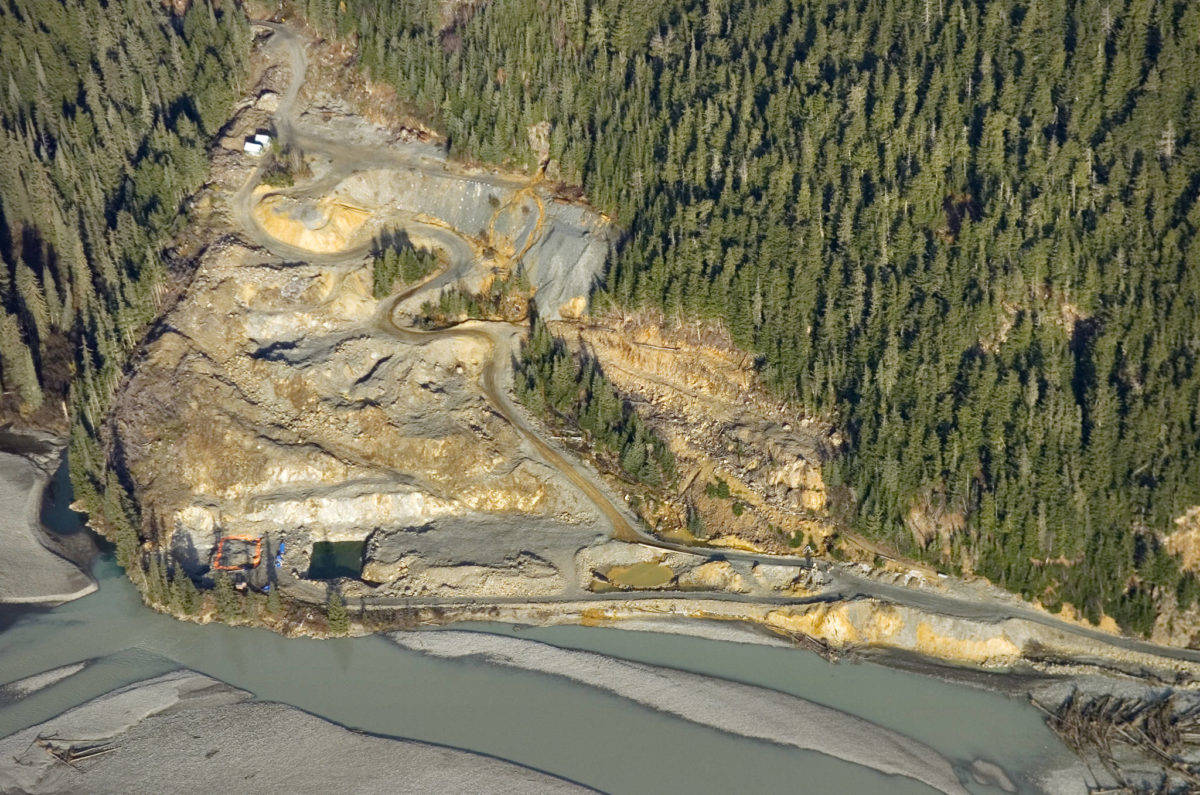By Cynthia Wallesz
Good news for the Taku River and for those, like myself, who sell and eat Southeast Alaska seafood.
Last month, the British Columbia government released a permanent closure and cleanup plan for its long-abandoned and polluting Tulsequah Chief mine. When releasing the plan, B.C. committed almost $1.6 million to start the process.
In tracking this issue for the last five years, I’ve learned that making strides in transboundary waters takes having prominent elected officials on your side. I especially want to thank Alaska Sens. Lisa Murkowski and Dan Sullivan for speaking up for the Taku River in their travels, on the Senate floor and elsewhere. Alaska-side attention to the Taku has done much to finally spur this B.C. action.
The Tulsequah Chief mine sits right on the banks of the Tulsequah River, the largest tributary to the Taku River, only a few miles upstream of the Alaska-B.C. border. The mine has been leaching toxic acid drainage into the Tulsequah River since the 1950s. The ongoing pollution has been an example of problems with B.C.’s regulation and management of mining activities and was the impetus for growing concerns about B.C. mining in the transboundary region all along Southeast Alaska’s border.
[8 senators send letter urging more transboundary water quality oversight]
As a commercial salmon fisherman out of Petersburg who sells directly to consumers, I talk with hundreds of people each year about the positive attributes of Southeast Alaska and our seafood. Attributes like clean, cool water and natural river systems that support the wild, healthy and sustainable salmon runs that provide nutritious food people throughout the world enjoy year after year. My marketing efforts depend on the ability to continue harvesting wild stocks of salmon and telling the story of intact, productive habitats that yield the healthiest of proteins.
Pollution from the Tulsequah Chief has rendered about 2 miles of productive spawning and rearing habitat unusable by fish. Literally tons of toxic heavy metals like copper, lead, cadmium and arsenic have been discharged into the Tulsequah River; we do not know where these metals are ending up. This pollution is in clear violation of B.C. and Canadian federal water quality standards and mine permits. Copper is especially worrisome because fish exposed to even very low levels of copper can potentially suffer from impaired brain function, reduced reproduction, impaired predator avoidance, reduced ability to find food, compromised “homing” ability, decreased growth and depressed immune response.
The Taku River is usually Southeast Alaska’s largest overall salmon producer with the largest run of coho and king salmon, and is a vital regional economic, cultural and recreational resource. After more than 60 years of toxic acid mine drainage from the abandoned Tulsequah Chief mine, we now have an opportunity to stop the pollution and end this mine’s threat to Taku fish.
Cleaning up and closing Tulsequah Chief will largely end the threat of additional mining and acid mine drainage in the lower Taku. This is currently the best, relatively easiest and timeliest opportunity to protect a valuable Southeast Alaska transboundary salmon watershed from the effects of B.C. mining.
But there is still work to be done. The remediation will be logistically challenging and far more funding will be needed than has thus far been allocated. We need to ensure B.C. follows through on its promises. The cleanup and closure efforts need to be conducted properly and swiftly with enough money to finish the job.
To Murkowski and Sullivan, as well as Gov. Mike Dunleavy and other elected officials, Tribes and the hundreds of commercial, sport, and subsistence fishermen and businesses who have for many years called for an end to Tulsequah Chief’s pollution, thank you for standing up for the Taku and for the Alaskans who depend on it. Please continue to stay engaged to ensure B.C. follows through on its commitment to close and clean up the Tulsequah Chief mine as expeditiously as possible.
• Cynthia Wallesz is an Alaska seafood advocate who fishes commercially for salmon in Southeast Alaska, is a direct marketer and consults for small businesses and nonprofits. Columns, My Turns and Letters to the Editor represent the view of the author, not the view of the Juneau Empire. Have something to say? Here’s how to submit a My Turn or letter.

